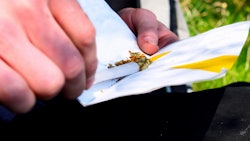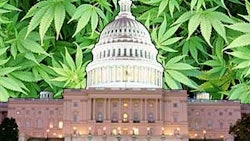Editor's Note: Philadelphia Mayor Michael Nutter declined to sign the original bill that was passed by an overwhelming majority (13-3) of City Council members in June, saying it was "simplistic." He also didn't want to "undercut police officers' ability to control the public use of the illegal drug." But I fear the new bill opens up a murky area when it comes to law enforcement.
As this article explains, "The original bill created a civil offense for possessing of less than 30 grams of marijuana. Violators faced a $25 fine, but no arrest or criminal record." The new bill "now includes a separate civil offense for public use, with a penalty of a $100 fine or up to nine hours' community service."
The murkiness comes in here: "Officers will still have the discretion to use the full weight of the state law in instances were other crimes are involved or a suspect is failing to cooperate with police, Nutter said. State law calls for up to a $500 fine and 30 days in jail as well as a criminal record."
Police officers will be able to use their discretion. No disrespect at all intended to the city's finest, but doesn't leaving the door open to "discretion" also leave the door open to inconsistencies and problems? If other crimes are involved, shouldn't those other crimes be addressed, and not coupled with exceptions to a new law? It's either a civil offense or its a criminal offense. Why would this be open to interpretation? What do you think?Â
It was hardly a lovefest, but Mayor Nutter and City Councilman James Kenney made public peace Wednesday over the fractious run-up to their compromise this week to decriminalize possession of small amounts of pot.
"I want to apologize," said Kenney as he stood at a news conference with the mayor he had unmercifully hectored during the summer for his delay in signing the councilman's marijuana bill. "I sometimes get a little impatient when I feel strongly about something. I can get a little angry, a little red in the face. I guess I'm a little impatient at times."



























